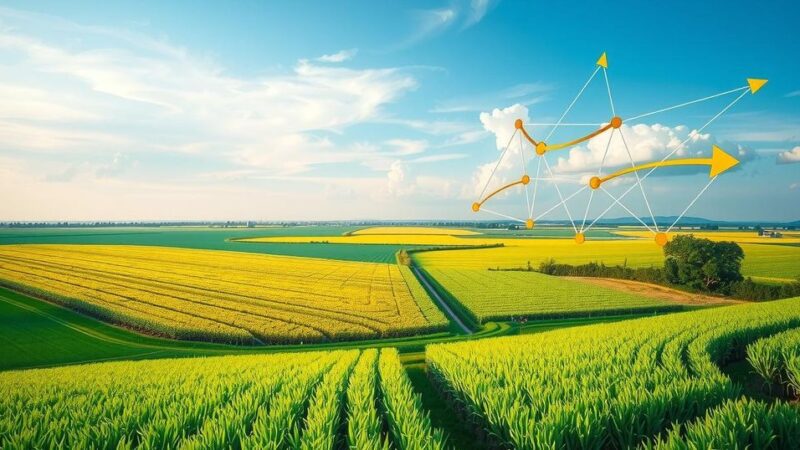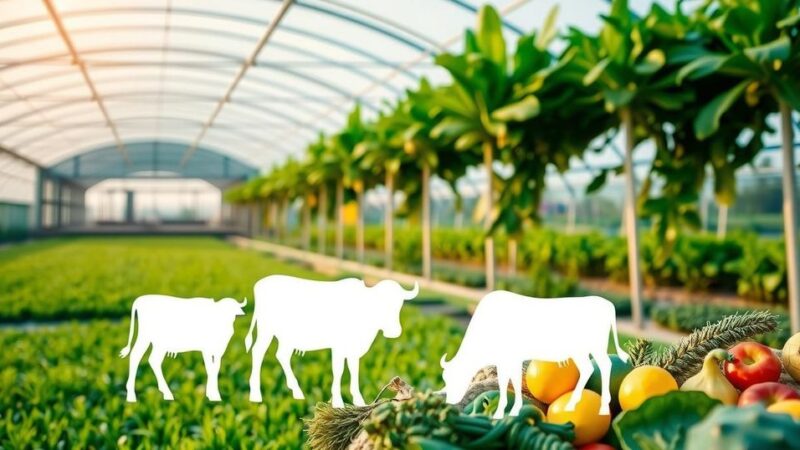The World Bank’s 2024 Economic Update for Equatorial Guinea highlights the economic contraction of 5.7% in 2023 due to the decline in the hydrocarbon sector and the importance of designing effective fiscal instruments for sustainable forestry and economic diversification. The report emphasizes the need for improved forest governance, fiscal reforms, and increased international support to preserve forests while enhancing the country’s economic potential.
MALABO, October 8, 2024 – The World Bank has released its 2024 Economic Update for Equatorial Guinea, which examines recent economic trends and provides insights into the importance of implementing effective fiscal measures to foster sustainable forestry and promote economic diversification. Equatorial Guinea’s economy faced a setback in 2023, contracting by 5.7% as a result of a downturn in the hydrocarbon sector following two years of recovery. Nonetheless, inflation experienced a decline to 2.4% in 2023, a decrease from 4.9% in the previous year. This reduction is attributed in part to the stringent monetary policies adopted by the Bank of Central African States (BEAC), an agreement for food imports from Serbia, and the lowering of certain import tariffs. The report emphasizes the critical necessity of formulating effective fiscal tools geared toward sustainable forestry alongside the nation’s efforts to diversify its economic base. Currently, forests cover approximately 87% of Equatorial Guinea’s territory and are crucial to its ecosystem. However, deforestation and forest degradation rates have escalated in recent years. The forestry sector’s contribution to the nation’s GDP has significantly declined since the 1990s, primarily due to inadequate local processing capabilities for wood products. Although historically reliant on agriculture and timber, Equatorial Guinea’s economy has now pivoted to a heavy dependence on hydrocarbons. Presently, the forestry sector, which includes logging and wood processing industries, is not fully leveraging its potential for job creation and added economic value. “Developing a sustainable commercial forestry sector that focuses on domestic value-added processing would help Equatorial Guinea meet both its economic diversification and forest preservation commitments,” stated Aissatou Diallo, Resident Representative for Equatorial Guinea. Equatorial Guinea’s dedication to sustainable development is manifest in its national plan (AGENDA 2035) and the REDD+ strategy to reduce carbon emissions from deforestation and degradation. Achieving these goals will necessitate bolstering domestic revenue mobilization while seeking increased external financing. Despite a recent upsurge in international funding dedicated to sustainable forest management within the Congo Basin, the current financing commitments remain inadequate. The report identifies various solutions aimed at addressing the complex challenges confronting the forestry sector in Equatorial Guinea. These include: 1. Designing effective fiscal instruments such as adjusting forest tax rates relative to timber production methods, incentivizing forest certification, and adopting comprehensive long-term plans for forest management. 2. Enhancing forest governance through increased transparency and traceability of forest products, and establishing a robust commercial wood-processing industry that contributes to sustainable management, revenue enhancement, job creation, and greater economic inclusion. 3. Securing increased financial and technical support from the international community to preserve forests as a vital ecosystem within the Congo Basin and as an essential global public asset. “Fiscal policies that support forest preservation and sustainable use of forest resources, combined with improved governance and an investment-friendly climate, will not only facilitate domestic revenue generation but may also attract additional funding, including both international and private investments, in light of Equatorial Guinea’s shrinking fiscal space,” remarked Djeneba Doumbia, Country Economist for Equatorial Guinea. For further details, the Economic Update for Equatorial Guinea is available for download in English.
Equatorial Guinea, located in Central Africa, is characterized by its rich natural resources, particularly hydrocarbons, which have historically driven its economy. However, there is a growing recognition of the need to diversify the economy and address the sustainability of its environmental resources, particularly its forests. The World Bank’s Economic Update highlights the current economic conditions, the role of forestry in economic diversification, and the necessary fiscal reforms required to combat deforestation and promote sustainable practices.
In summary, the World Bank’s 2024 Economic Update for Equatorial Guinea underscores the pressing need for effective fiscal instruments to bolster sustainable forestry and economic diversification. The report advocates for a comprehensive approach to forest management, governance, and international support, essential for preserving Equatorial Guinea’s forests while enhancing the economy. By implementing targeted fiscal reforms and fostering a sustainable forestry sector, the nation can better align its economic objectives with ecological preservation.
Original Source: www.miragenews.com






